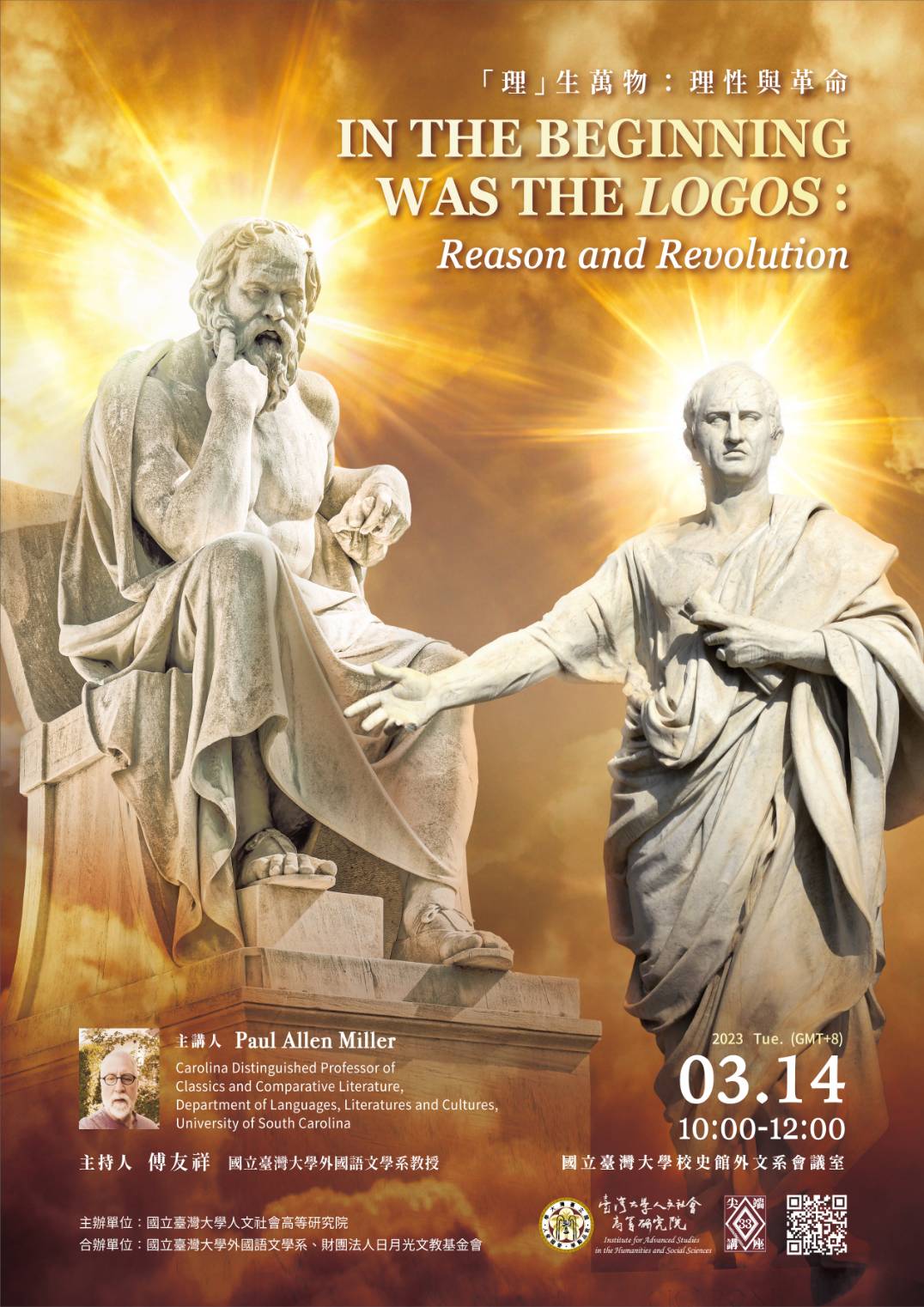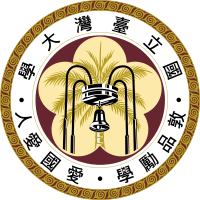【Leading-Edge Lecture 33】In the Beginning Was the Logos: Reason and Revolution
Moderator: Yu-hsiang Fu (Professor, Department of Foreign Languages and Literatures, NTU)
Venue: The DFLL conference room in Gallery of University History, NTU
Organizer: Institute for Advanced Studies in the Humanities and Social Sciences, NTU
Co-organizer: ASE Cultural & Educational Foundation
Paul Allen Miller is Carolina Distinguished Professor at the University of South Carolina. He was Vice Provost for International Affairs from 2014 to 2020. He has held visiting appointments at University of the Ruhr, Paris 13, and Beijing Language and Cultural University.
His teaching and research interests are theory, Latin literature, ancient philosophy, and classical reception. He is editor emeritus of Transactions of the American Philological Association. He is the author of Lyric Texts and Lyric Consciousness (1994), Latin Erotic Elegy (2002), Subjecting Verses (2004), Latin Verse Satire (2005), Postmodern Spiritual Practices (2007), Plato’s Apology of Socrates (2010) with Charles Platter, A Tibullus Reader (2013), Diotima at the Barricades: French Feminists Read Plato (2015), and Horace (2019). He has edited fifteen volumes of essays and has published or forthcoming more than 100 articles on Latin, Greek, French, and English literature and philosophy. His latest book is Foucault’s Seminars on Antiquity: Learning to Speak the Truth from Bloomsbury (2021).
Abstract:
Socrates in the Apology says that the jurors who voted to convict him won’t believe it when he says it is not an option for him to remain silent, that he cannot live a quiet life. “I say that this is the greatest good for a human being, each day for arguments/words to be made about excellence (poieisthai logous peri aretēs) and the other things about which you hear me conversing (dialegomeou), examining myself and others, and that the unexamined life is not liveable for a human being” (38a8). This is a very famous passage. In many ways it is the foundational passage of the western philosophical tradition. It might not be too strong to say the concept of western reason originates in this passage, that we are here witnesses at the birth of the logos, as that which makes sense out of our world of things and experience. Yet, I also want to argue, that Socratic reason is no longer our reason, that ours has become impoverished. It has become incapable of speaking to our experience in a way that moves and convinces people. The reconstruction of reason,is an urgent political and existential task. The logoi (and the plural is important) for which Socrates is willing to give his life do not limit themselves to the forms of rationality that are predominant within our postcartesian, scientific, and neoliberal world: the objective, the repeatable, the quantifiable. In this lecture, I look at two key moments in the history of Western reason, the Socratic and the Ciceronian, not as emblems of a lost Golden Age to be recovered, but as two moments in the history of thought that are germane to the world we live in and offer possibilities for understanding truth and reason that have been marginalized in our current situation.




